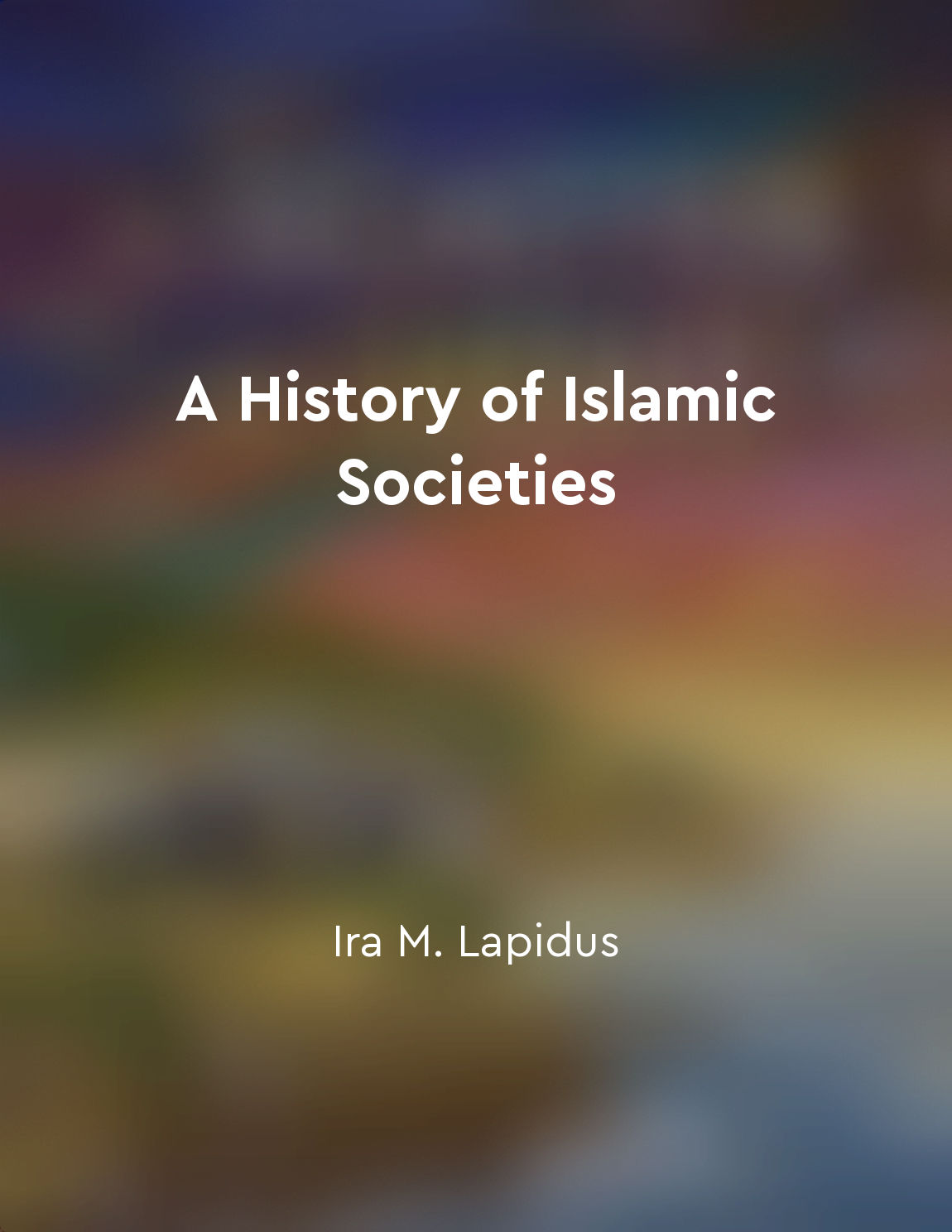Islamic societies adapted to changing political landscapes from "summary" of A History of Islamic Societies by Ira M. Lapidus
Throughout history, Islamic societies have demonstrated a remarkable ability to adjust to shifting political environments. This adaptability has been essential for their survival and growth amidst the ever-evolving political landscapes they have faced. From the early days of Islam to the present day, Muslims have navigated a variety of political systems and structures, including caliphates, sultanates, empires, and modern nation-states. One key aspect of this adaptation has been the flexibility of Islamic law, or Sharia, which has allowed for the accommodation of diverse political contexts. Islamic legal scholars have developed a range of doctrines and principles that can be applied in different political situations, enabling Muslim societies to maintain their religious identity while also engaging with the political realities of the time. This flexibility has helped Islamic societies to endure and thrive in changing political climates. Another important factor in the adaptation of Islamic societies to changing political landscapes has been the concept of consultation, or shura. This principle, rooted in the Quranic injunction to "conduct their affairs by mutual consultation," has served as a foundation for political decision-making in Islamic societies. By emphasizing the importance of consensus-building and collective decision-making, shura has enabled Muslim communities to navigate political transitions and conflicts more effectively. Moreover, the decentralization of political power in Islamic societies has also contributed to their ability to adapt to changing political landscapes. Historically, Islamic governance has often been characterized by a division of authority between central and local rulers, as well as a system of checks and balances that limits the power of any single individual or institution. This decentralized political structure has allowed Islamic societies to respond more flexibly to external pressures and internal challenges.- The adaptability of Islamic societies to changing political landscapes can be attributed to a combination of factors, including the flexibility of Islamic law, the principle of consultation, and the decentralization of political power. By drawing on these resources, Muslims have been able to navigate a wide range of political environments throughout history, demonstrating a resilience and dynamism that continue to shape Islamic societies today.
Similar Posts
Hadith is classified into different categories based on reliability
Hadith is not just a single entity, but rather a collection of traditions passed down from the Prophet Muhammad. These traditio...
His explanations are based on sound Islamic scholarship and knowledge
The explanations presented are firmly grounded in the teachings of Islam and supported by a deep well of knowledge and scholars...

Islamic societies were influenced by interactions with other cultures
Islamic societies have not existed in isolation from the rest of the world; rather, they have been shaped by interactions with ...
He encourages critical thinking and introspection
Muḥammad Ḥasan, in 'A New Approach to Iqbal', delves into the transformative power of critical thinking and introspection that ...

